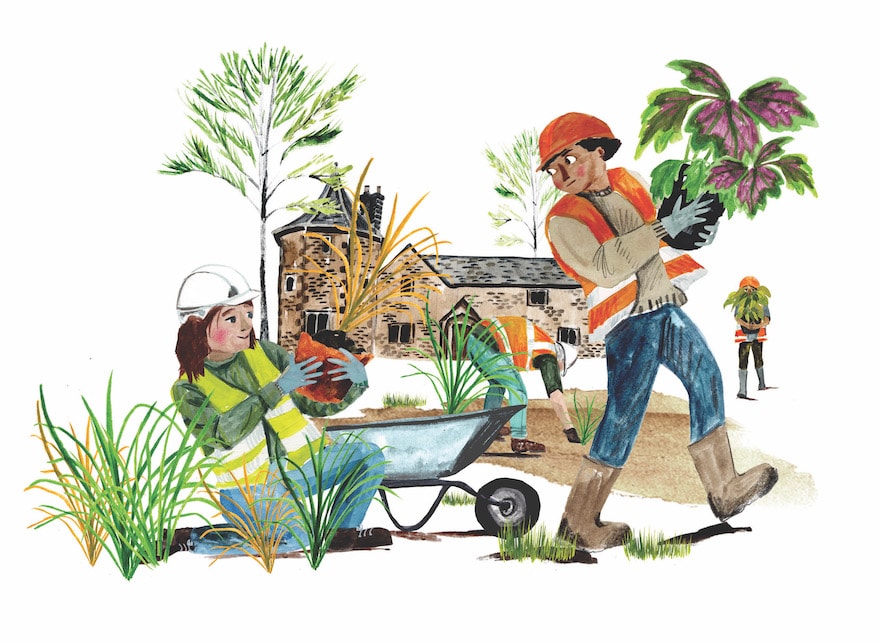Environmental Philanthropy: Stories to Inspire
Using gardens to bring communities together
The Royal Horticultural Society (RHS) has embarked upon the creation of a new garden – Bridgewater in Salford, Greater Manchester – which is the first new garden they have created in 17 years, and the largest hands-on project in their 215-year history. It is a very different kind of project for the organisation, not least because Salford is among the most deprived local authority districts in England. It would have been easy for the RHS to create a new garden that follows a template with which they are familiar. What sets this garden apart is that a key objective for the RHS at this site is community engagement – the garden is providing volunteering, apprentice and training opportunities right from the start. Local people have also been involved in the garden design, and there are plans for community-teaching allotments and play areas. The idea is that the local community should develop a sense of ownership of the garden.
Salford has seen many business relocations into the area that were intended to bring local benefits, but have not always panned out that way. With this project, it was important that there was genuine, early engagement with the surrounding communities that felt more than tokenistic. Employment and training opportunities provide an incentive for people to get on board, and take pride in this lovely place for people to enjoy on their doorsteps.
It’s important to us to encourage larger NGOs to challenge themselves and be a bit more reflective with our grant funds. We could have funded the head gardener at Bridgewater if we had wanted to, but there’s not much risk-taking in that – it’s the RHS’s bread and butter. Instead our funding went towards the costs of two new posts, a regional development manager and regional development advisor, to work with local communities in the area and involve them in the planning and delivery of the garden.
We are keen to support environmental projects that involve local communities because ownership is everything when it comes to the environment. People have often felt disenfranchised on environment issues. As one RHS staff member who works nationally puts it: ‘The development anchors the RHS to the local area for ever, really, which means the engagement of the local communities and partners from the outset is fundamental to the ambition of the garden.’
Everybody has a right to a healthy environment where they can thrive. That can come in many forms, but if people feel they have a stake, we will make much greater progress.
